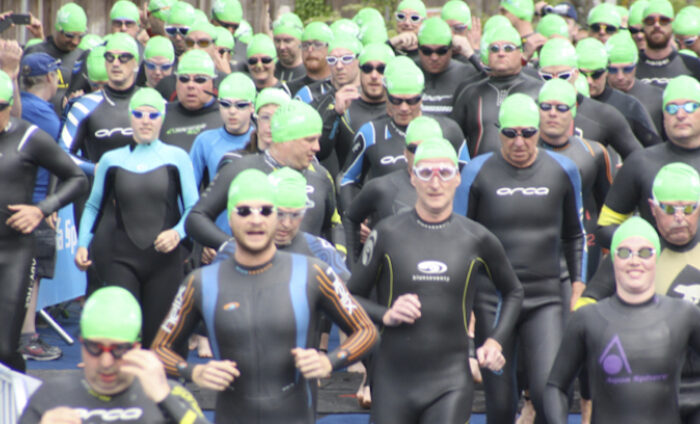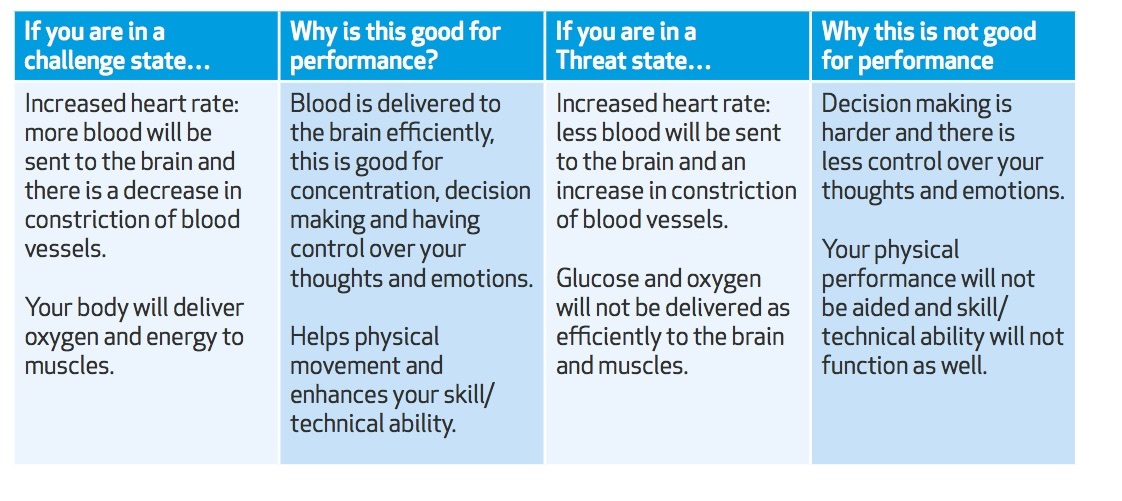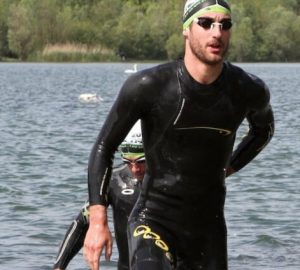
Sport Psychology – challenge or threat?
Sport psychology is the study of how psychology influences sports, athletic performance, exercise and physical activity. This month we ask: How are you viewing your upcoming performance? As a challenge or as a threat?
Imagine yourself at the start of an open water swimming event: people are chatting nervously, excitement levels are high, individuals are jostling for position, everyone is waiting for the klaxon to sound. You are about to swim in a 2km race. You have swum 2km before, yet you are feeling nervous, your heart is racing, perhaps you are worrying about your lack of training or how cold the water is going to be and you don’t know how well you are going to do.
The added element of the competition adds a whole host of factors into the mix; something that in sport is often called ‘pressure’. How we deal with pressure is something that sport psychologists often work on with athletes.
Sometimes, in moments of pressure, we fail to realise that the physical requirements of the task (in this case the 2km swim) are the same as something you have done before (even if you haven’t raced 2km, you might regularly swim 2km in training). This pressure causes our perception of the event to alter. In sport, pressure is an internal phenomenon; it comes from within you, not from the situation. It is important to realise that it is not the task that creates pressure, but our perception of the task.
How are you doing?
Having a self-awareness of your thoughts and feelings of a pressure situation is a really important step towards helping you perform in similar situations in the future. It will help to move you towards being able to control and take charge of your mind and body when it comes under pressure.
In pressure situations we respond physically in different ways which many of you will recognise; these often include things such as ‘butterflies’ in the stomach, sweaty palms, tense muscles or nausea. These physical symptoms are all normal and are designed to help us out when facing a pressure situation, as our physiology is designed to help our sport performance. Psychologically, however, there are two separate ways that we can respond to pressure situations – one is good for performance and the other is not.
Challenge and threat
These two different responses have been called ‘challenge’ and ‘threat’ states and research shows that when approaching a pressure situation, athletes experiencing a challenge state perform well (better than normal in fact), yet if athletes are experiencing a threat state, they perform poorly (this can be worse than normal). Research has shown this to be evident across a variety of sports with both elite and non-elite athletes.
Look at the table below to see how your body will respond to your mental state.
The principles of challenge and threat have huge implications for your sport performance and have helped many athletes in their approach to upcoming competitions. By approaching competition in the right mental state, you can use the body’s natural ability to energise your brain to make accurate decisions and think clearly. As athletes, we always want to achieve our potential and by having the right mental approach to a pressure situation, we can do just that. But how do we do it?
Let’s go back to the 2km race scenario and assume that this race is important to us. Here the swimmer is focusing on uncertainty (not knowing how cold the water will be), requirement of effort in the race (lack of training is a worry) and there is a danger to self-esteem (not knowing how well they will do). All of these elements make up the ‘demands’ of the race situation; imagine that these ‘demands’ sit on one side of a pair of scales. On the other side of the scales are the ‘resources’. Resources are elements which help you cope with the demands of your situation. Resources include self-confidence, control and achievement goals. If the ‘demands’ of the race exceed the resources of the race, then a threat state will occur. If, as an athlete, you are able to focus on your resources, these will outweigh your demands, tip the scales so your resources are ‘higher’ and you will be in a challenge state.

How to develop your own challenge strategy
The strategy for getting yourself into a challenge state is to focus on resources, as these will help you perform to your potential.
So it is all about enhancing your self-confidence, control and ensuring that you are always focused on what can be achieved instead of what could be lost (achievement goals). Briefly, let’s take a closer look:
Self-confidence – This is one of the most important psychological factors relative to sport performance outcomes. Self-confidence is about perception and is a changeable state. Having higher levels of confidence will help us to cope with and enjoy performing under pressure. The feedback that you receive from others and deliver to others can determine yours and other people’s self-confidence. You cannot control what others say to you, but you can control what you say to yourself and the words that you choose. Try and spend some time listening to your inner voice and how you talk to yourself about your performances.
Control – In open water swimming, there are many things that are not controllable (temperature of the water, weather conditions, other swimmers around you to name a few). Accepting that there are aspects that you cannot control in your performance environment is important, but focusing on the things you CAN control will help you create a challenge state. Helping ourselves to focus on the things we can control helps us to eliminate unhelpful thoughts.
Achievement goals – Prior to a competition, try focusing on things that you need to do in order to achieve success, rather than on what you want to do to avoid failure. By focusing on this, you are more likely to face up to difficult situations, prepare well for your event, persist when things get tough and feel more positive.
Increasing these three factors will help you achieve a challenge rather than a threat state. Another important factor is to think in a smart way when approaching performances. It is easy to magnify ‘demands’ in the lead-up to a race, but by thinking about the right things, you will be able to keep the demands of your sport in perspective. This can be easier said than done, but do not worry, all these factors will be explored in further issues!
Finally…
An important point to remember is that you can control how you react to an important upcoming competition or performance situation by learning and developing mental skills to enhance your resources to meet the demands of your situation. By making sure that you approach important performance situations in a challenge state you can produce better performances more consistently and effectively.
Helen Davis is a sport psychology consultant who works with individuals, teams and coaches on all aspects of sporting performance.
Helen has a BA (Hons) in Psychology, an MSc in Sport and Exercise Psychology and is currently working towards chartered status with the British Psychological Society. She is also an active masters and open water swimmer.
Find out more: thinkbelieveperform.co.uk. Follow Helen on Twitter @helenDav22453








